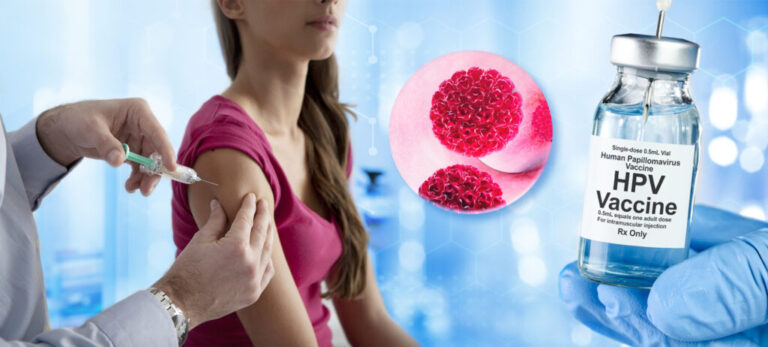Human Papillomavirus (HPV) is a ubiquitous and insidious group of viruses that can affect both men and women, with potentially severe consequences. The introduction of the HPV vaccine has been a groundbreaking step in preventing HPV-related infections and their associated health risks. In this article, we will delve into the significance of the HPV vaccine, its efficacy, and the societal impact of widespread vaccination.
Understanding HPV:
HPV is a group of related viruses that can infect various parts of the body, primarily the genital area. While some strains are relatively harmless and may cause warts, others can lead to more serious conditions such as cervical, anal, and oropharyngeal cancers. HPV is the most common sexually transmitted infection globally, affecting millions of people each year.
The HPV Vaccine:
The HPV vaccine, developed to counter the threat posed by this widespread virus, is a powerful tool in preventing HPV-related cancers and diseases. There are currently several HPV vaccines available, with the most common protecting against the most high-risk strains known to cause cancer. These vaccines are typically administered in a series of doses over several months, providing robust protection against HPV infections.
Efficacy and Safety:
Extensive research and clinical trials have demonstrated the efficacy and safety of the HPV vaccine. The vaccines have been proven to be highly effective in preventing infection with the targeted HPV strains, reducing the incidence of associated cancers and diseases. The vaccines have undergone rigorous testing to ensure their safety, and the benefits far outweigh any potential risks. Adverse reactions are generally mild and temporary, such as redness or swelling at the injection site.
Target Population:
HPV vaccination is recommended for both males and females, ideally before they become sexually active. The Centers for Disease Control and Prevention (CDC) recommends routine vaccination for adolescents aged 11-12, with catch-up vaccination for those who did not receive it earlier. Vaccination at an early age is crucial as it ensures maximum protection before potential exposure to the virus through sexual activity.
Preventing Cervical Cancer:
Cervical cancer is one of the most significant threats posed by certain high-risk strains of HPV. The HPV vaccine has proven to be a powerful tool in preventing cervical cancer. By targeting the specific strains responsible for the majority of cervical cancer cases, the vaccine acts as a preventive shield, reducing the incidence of this deadly disease.
Reduction in HPV-Related Diseases:
Aside from cervical cancer, the HPV vaccine also offers protection against other HPV-related cancers and diseases. These include anal cancer, oropharyngeal cancer, vulvar and vaginal cancers, and genital warts. By reducing the prevalence of HPV infections, the vaccine plays a pivotal role in preventing a spectrum of diseases affecting both men and women.
Societal Impact:
Widespread HPV vaccination has the potential to create a significant societal impact by reducing the overall burden of HPV-related diseases. By preventing infections, the vaccine not only protects individuals but also contributes to public health efforts in controlling the spread of the virus. This, in turn, can lead to a decrease in the number of HPV-related cancer cases and a subsequent reduction in healthcare costs associated with treating these diseases.
Overcoming Hesitancy:
Despite the proven efficacy and safety of the HPV vaccine, vaccine hesitancy remains a challenge. Education and awareness campaigns are crucial in dispelling myths and misconceptions surrounding the vaccine. Addressing concerns about safety, potential side effects, and the age at which vaccination is recommended can help increase acceptance and uptake.
The HPV vaccine stands as a powerful and effective tool in the prevention of HPV-related cancers and diseases. By targeting high-risk strains of the virus, the vaccine offers a shield against a silent threat that affects millions worldwide. Widespread vaccination not only protects individuals but also contributes to public health efforts, reducing the overall burden of HPV-related diseases. As we continue to advance in medical research and public health initiatives, the HPV vaccine remains a beacon of hope in the fight against this pervasive and potentially deadly virus.


